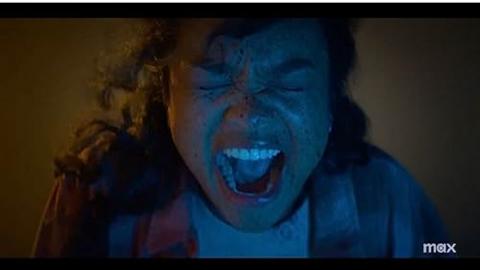Riddled With Clichés, ‘Gray Matter’ Misses the Mark

Since reality TV is centered on quibbling, emotional outbursts, and near-incessant drama, it goes to figure that any such program based on the making of a movie has pretty well decided the film will be lousy before shooting begins. After all, what fun would it be to watch a reality show about a director who deftly rolls into work, is embraced by cast and crew, and captures magical screen moments day in and out? It’s much more fun to watch a trainwreck, and that is how Vulture writer Kathryn VanArendonk describes the making of “Gray Matter” in her review of “Project Greenlight: A New Generation.”
The new “Greenlight” documents the making of “Gray Matter” in painful detail, meaning many viewers will know how the film was produced before they get around to watching it. Full disclosure: I did not watch the “Greenlight” reality reboot. I did watch “Gray Matter,” and was unsurprised when stories about the reality show detailed conflicts between the movie’s director and studio brass and, apparently, even between film producers and the “Greenlight” crew. All accounts I have encountered speak of on- and off-set drama, and that’s not the sort of thing that generally equates to great cinema. Sure, there are exceptions, like the filming of war classic “Apocalypse Now” and (apparently) any film made by director David O. Russell. But workplace drama and great results are not the norm … and the friction certainly didn’t help “Gray Matter.”
Let’s start by putting blame where it obviously belongs. Writer Phil Gelatt’s (“Europa Report”) story is not very good. It centers on a mother and daughter who have moved from place to place for years in an effort to hide their powerful telekinetic abilities from the world. The mother, Ayla (Jessica Frances Dukes), knows terrible things will happen to her daughter, Aurora (Mia Isaac), should they be discovered, but she refuses to fully explain the situation.
Naturally, this grates on the teen girl who wants nothing more than a boyfriend and normal high school experience. Much is also made of the fact that Aurora can’t fully control her abilities, so Ayla spends ample time pushing her toward more and more impressive feats. Viewers learn that mother and daughter are capable of many astonishing things, including moving objects with their minds, hearing the thoughts of others, and even projecting lifelike images to places of their choosing.

On paper, this sounds OK. Sadly, it’s nothing more than a reworking of better tales that we’ve already seen. “Hanna,” both the 2011 Joe Wright film and the recent Prime Video series, tell of a young girl trained in survival by a father who knows government agents are attempting to track them. Both of those productions are outstanding. Although not on the level of “Hanna,” Jennifer Lopez’s 2023 Netflix release “The Mother” is entertaining and walks a similar path.
Where “Gray Matter” departs from these other projects is with its focus on telekinesis, but even that aspect seems tired. Writer-director Robert Rodriguez and star Ben Affleck churned out “Hypnotic,” a decent yarn about telekinesis just a few months ago. It wasn’t embraced by moviegoers, despite being a far cry better than “Gray Matter.” But if you really want a classic on the subject, you could turn to John Turtletaub’s “Phenomenon” (1996) or David Cronenberg’s “Scanners” (1981). In short, science-fiction and fantasy fans have better ways to reach the itch that “Gray Matter” presumes to scratch.
Along with the tired story, “Gray Matter” features severely underdeveloped characters. Isaac and Dukes are fine considering the material they’re given to work with, but both characters are nothing more than rough sketches of human beings. Dukes is the protective mom, constantly uptight and worried, while Isaac is the rebellious youth convinced her mother is overreacting. The best performance in the film comes from Garret Dilahunt, another super-powered human who may or may not want to help Aurora hone her abilities. His character has the widest emotional arc and he does some nice scenery chewing when appropriate.
None of this changes the fact that “Gray Matter” is underwritten and littered with cliché moments -- but it demonstrates that director Meko Winbush can draw good work from her actors and may have a good film hidden somewhere inside. Sadly, “Gray Matter” is not it.
Author Bio:
Forrest Hartman is Highbrow Magazine’s chief film critic.
For Highbrow Magazine































































































































































































































































































































